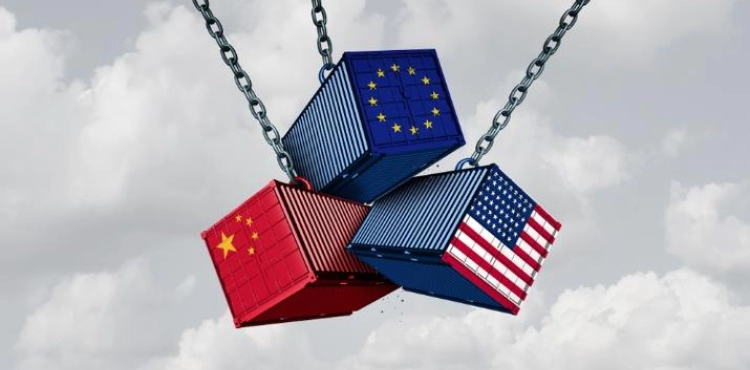The economy and American consumers are the biggest losers in the trade war waged by President Donald Trump´s administration with its main trading partners, according to a study by economists at the Federal Reserve Bank of New York and Princeton University.
The results of this study contrast with Trump´s assertion that the strict tariffs imposed on goods imported to the United States do not affect the US economy, on the contrary, that these tariffs generate billions of dollars on state coffers.
"Overall, using the usual economic methods, we conclude that American consumers are fully responsible for the full tariff burden," wrote expert Mary Amity and experts Stephen Redding and David Weinstein, according to a study published on the eve of the Commerce Department´s trade deficit data for the whole of last year.
Trump in 2018 imposed strict tariffs ranging from 10 to 50% on products imported to the United States worth 283 billion dollars. Washington´s trading partners, spearheaded by China, responded with similar measures and imposed strict customs duties on average of 16 percent for about $ 121 billion in US goods.
Economists argue that this tariff war has engulfed the United States in its first "protectionist" protectionist problem since the Great Depression of the 1930s, noting that current tensions raise questions about the future of international trade integration.
"While the long-term effects are not yet clear, the United States saw significant increases in intermediate and finished goods prices, significant changes in its network of distribution chains, a decline in the diversity of imported products, and a reversal of tariffs on prices Domestic products, "citing, for example, a significant increase in the prices of washing machines.
They pointed out, however, that foreign exporters did not lower the cost of products before customs duties to compensate for the resulting increase.
According to experts´ calculations until the end of 2018, "customs duties cost US consumers and imported companies an additional cost of $ 3 billion per month and an additional $ 1.4 billion per month due to economic losses associated with them."
The study found that the negative impact on the world´s first economy is certainly greater. The study does not take into account the consequences of the great ambiguity caused by the trade war, for example deterred investors and had consequences in the financial markets.












